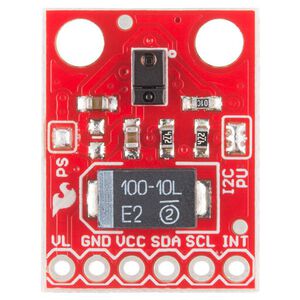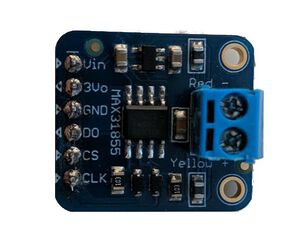Changelog - Version 1.10.0¶
Native API¶
This release brings with it lots of goodies, but most important is the native API. MQTT has been the only way this project communicated with Home Assistant for a while now. And MQTT is a great protocol to get started, but it always had problems:
Another service to install - Users would need to install an MQTT broker in order to get started.
MQTT Discovery - Home Assistant’s MQTT discovery has been great, but always had problems like retained messages etc.
Inefficient - A typical MQTT message for sending a binary sensor state is about 70 bytes long, and the MQTT library we used was quite inefficient with runtime memory allocation too.
So I decided to do something against that: ESPHome now features a native protocol (based on TCP+protocol buffers) that addresses these issues and has a component on the Home Assistant side too.
Does this mean MQTT will be removed?
No! MQTT is an awesome protocol with easy integration for many tools like Node-RED and custom MQTT clients. This native API is only for replacing communications with Home Assistant, so if anything gets removed it’s MQTT auto discovery for Home Assistant. Of course both can be used together at the same time too.
Should I switch to the native API immediately?
You definitely can, but a word of warning first: The MQTT implementation has seen tons of fixes for small quirks in how the ESP SDK works. From my own testing, the native API seems to be quite stable - but I’m sure it’ll take a bit of time to find+fix some final bugs.
How do I migrate from MQTT?
First, make sure you run at least Home Assistant 0.85.0 (currently a beta release). Then, go through the migration guide here (removed).
Python 3 Compatibility¶
PlatformIO has finally implemented python 3 support after some quick changes, ESPHome is now also compatible with python 3.5+. So with this new release you can try ESPHome with Python 3 already. Just make sure to install the development version of platformio first:
pip3 install -U https://github.com/platformio/platformio-core/archive/develop.zip
I don’t particularly like python 2, and in a year’s time support for it will officially be ended. So the plan for ESPHome is to drop python 2 as soon as possible. Once platformio releases version 4.0 (with python 3 support), I will go through and check everything still works. Maybe ESPHome will support python 2 for 1 or 2 releases after that but really I want to drop support for python 2 as soon as possible.
Dashboard & Hass.io Addon Updates¶
The dashboard and Hass.io addon have seen a lot of ❤️ in this release: The dashboard has seen tons of small changes to make the user experience better and the Hass.io addon has been completely re-written with the Hass.io Community Addon Images as the base.
The dashboard now features a built-in YAML editor.
Configuration wizard now shows a list of boards directly, so you just have to choose them from a dropdown.
Hass.io Addon: You can log in using your Home Assistant credentials now.
And many more changes (colored logs, auto-scroll, node status, update notifications, …)
Rename: esphome{lib, yaml} -> ESPHome¶
The name esphomelib and esphomeyaml were too technical, and this project has changed a lot since the first published release (the yaml part didn’t even exist back then). So … the project is being re-branded slightly:
esphomeyaml -> ESPHome
esphomelib -> ESPHome Core
esphomedocs -> ESPHome Docs
As you see, the yaml project is now getting the “fancy” name, because that’s by far the best way to use this framework. As part of this change, using the _core_ framework directly from code (without YAML) is being deprecated, the API docs have long been inaccurate now and users should really switch over to ESPHome through YAML
Of course that doesn’t mean you won’t be able to write custom code. In fact, this release also contains lots of new guides and changes to make creating custom components much easier. The goal is to have a project where users can use YAML for the boring boilerplate code but can completely customize everything with custom components.
This migration is of course huge - almost every single file in the code+docs base has esphome{lib, yaml} somewhere in it, so it will take time until the next release for this to be finished.
Breaking Changes¶
Previously, esphomelib would by default only publish every 15th sensor value in order to provide averaged values. However, that often confused users and I now decided to remove it and set the default update interval of all components to
60sinstead of the previous15s. You can get back the old behavior by settingsensor: - platform: ... # enter platform here # other settings update_interval: 15s filters: - sliding_window_moving_average: {}
The fastled effects have been renamed to
addressable_for the new Neopixelbus integration. See the validation error message for more info.
Other notable changes:¶
You can now configured multiple WiFi networks to connect to. The best one will be chosen automatically. This is along with a complete rewrite of the WiFi component which now interacts directly with the ESP SDK. (Connecting to Multiple Networks)
GPIO Switches have a new option
restore_modeto configure how their values should be restored on boot. (GPIO Switch)Added Substitutions to reduce repeating across configs.
Validation error messages are now displayed even better. Now all errors are shown with the exact context where the error appeared. Try it, it’s so much better. Next step will be to upgrade to a better YAML reader to provide better error messages when the YAML syntax is invalid.
Added a bunch of guides (and helpers) for creating custom components. Also new:
esphomeyaml.libraries,esphomeyaml.includesandesphomeyaml.platformio_options(ESPHome Core Configuration)Saved a lot of flash space on ESP8266 boards. Previously, platformio would allocate about 1/4 of flash for SPIFFS, but esphomelib doesn’t use that so now you have that as extra storage. Thanks @brandond <http://github.com/brandond>
You can now use Home Assistant to get time in ESPHome, so no more need for SNTP. See Time Component.
Release 1.10.1 - January 13¶
docs: Fix substitutions example & api intro text docs#117 by @thubot
lib: Fix while action not resetting is_running core#378
lib: Fix remote transmitter ESP32 repeat wait core#376
lib: Fix addressable lights core#375
yaml: Fix ESP32 not decoding stacktrace on broken PC esphome#330
docs: Fixed missing link to BME cookbook docs#120 by @Mynasru
lib: Fix addressable flicker effect core#383
lib: NeoPixelBus: fix handling of white color component core#384 by @badbadc0ffee
lib: Fix trigger not being optional core#381
docs: Add WiFi fast connect docs#121
yaml: Fix AsyncTCP compilation on ESP32 with Arduino breaking change esphome#334
yaml: Fix show logs with MQTT and dashboard esphome#332
lib: Add WiFi fast connect mode core#385
lib: Fix API Server has deep sleep core#386
yaml: Introduce wifi fast connect mode esphome#333
lib: Fix GPIO Switch not handling inverted core#387
lib: Expose NeoPixelBus Controller core#388
yaml: Pin platformio platforms esphome#335
lib: Fix ble tracker compile error core#390
All changes¶
docs: CSE7766 Update Interval docs#91
docs: Fix docs for LCD display strftime docs#95
lib: Make CSE7766 a polling sensor core#305
lib: Supply clang-format file for contributors core#290
yaml: Time SNTP validate server format esphome#254
yaml: Fix GPIO input schema validator esphome#253
lib: Implement custom sensor platform core#274
lib: Only compile code stuff if necessary core#309
yaml: [Huge] Util Refactor, Dashboard Improvements, Hass.io Auth API, Better Validation Errors, Conditions, Custom Platforms, Substitutions esphome#234
lib: Fix large JSON payloads being cut off core#323 by @quazzie
docs: Add Wikipedia link to tz database zones list docs#105 by @apeeters
lib: Native Esphomelib API core#322
yaml: Add native ESPHome API esphome#265
docs: Documentation for MAX31855 sensor docs#97 by @sherbang
lib: Fix typo in Output Switch core#307
lib: Fix PCA9685 with many channels core#304
docs: Fixed typo in Sonoff R2 Cover example docs#112 by @voicevon
lib: Dump native API Server config on boot core#338 by @voicevon
lib: Split Automation headers from implementation core#349
lib: Travis update core#350
lib: Fix API Server logs core#347
lib: WiFi Better logging for ESP8266 core#346
lib: API Server Watchdog core#345
lib: GPIO Switch Restore Mode core#344
lib: Fix Remote Receiver Overflow for ESP8266 core#348
yaml: Api fixes esphome#289
yaml: Fix host network esphome#280
yaml: Fix ESP8266 verbose logging esphome#291
yaml: API Server Watchdog esphome#290
lib: Implement Addressable Lights Base core#243
yaml: Disable SPIFFS to save flash space esphome#288
yaml: Fix MQTT message trigger esphome#282
yaml: GPIO Switch Restore Mode esphome#287
yaml: Addressable Lights esphome#294
yaml: Toggle Auto-Update Check With Environment Variable esphome#292
yaml: Make compatible with python 3 esphome#281
docs: Fix copy/paste error in turn_off_action docs#113 by @wutr
yaml: GPIO Switch Fix restore_mode validator esphome#296 by @yottatsa
yaml: Fixes for Python 3 Compatibility esphome#297
lib: Stop old template action when new one is started core#354
lib: Add APDS-9960 support core#286
lib: Change default update interval to 60 seconds core#356
lib: ESP32 Ethernet support core#288
lib: Add ULN2003 support core#301
lib: Add clean discovery option to simplify transition to native API core#357
yaml: Add clean MQTT discovery option for native API esphome#302
yaml: Add APDS9960 Support esphome#300
lib: Add neopixelbus component core#352
yaml: Add neopixelbus component esphome#303
yaml: Add support for MAX31855 sensor esphome#258 by @sherbang
yaml: ULN2003 Support esphome#304
yaml: Add ESP32 Ethernet Support esphome#301
docs: total_daily_energy doesn’t have pin option docs#114 by @oscar-b
docs: Getting started HassIO - USD device discovery docs#110 by @DavidDeSloovere
docs: BME280 environment cookbook entry docs#107 by @Mynasru
docs: Update getting_started_command_line.rst docs#102 by @doskoi
docs: Updated the multi click example code block docs#92 by @cooljimy84
docs: Add step to setting up devices docs#101 by @magnusoverli
yaml: Update beta config esphome#305
yaml: Fix component.update action esphome#308
yaml: OTA don’t error when upgrading from no password to password mode esphome#309
yaml: use full space on small devices esphome#310 by @escoand
lib: Fix interval compilation error core#364
yaml: Fix interval trigger esphome#313

